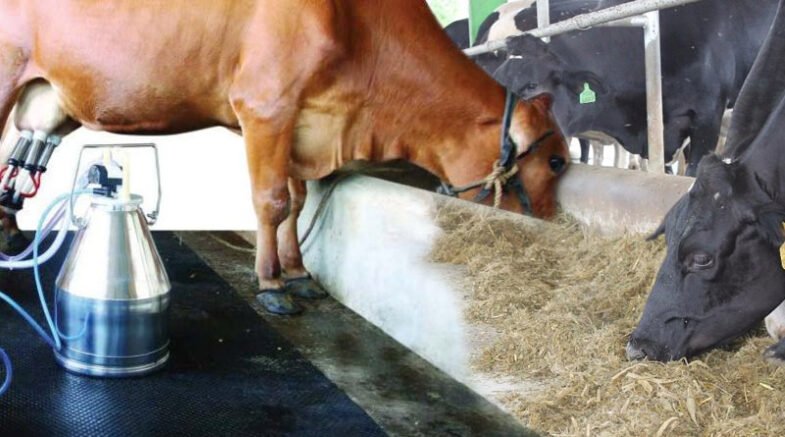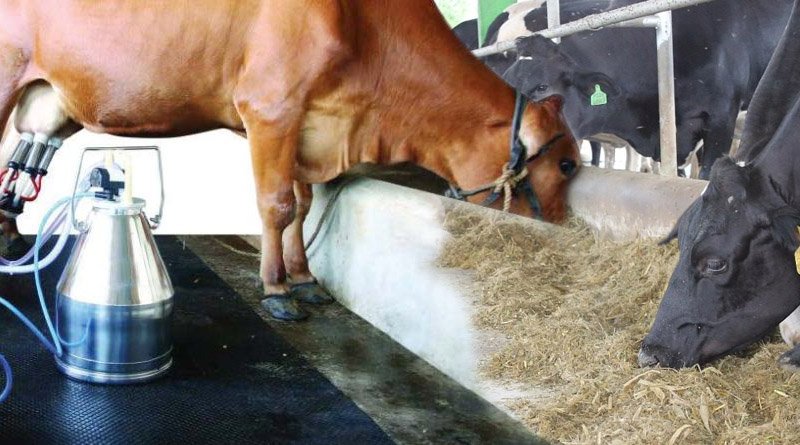The training was sponsored by the project “Capacity Building of Dairy Farmers and Industry Stakeholders on the Milk Value Chain.”

Vice-Chancellor Prof. Dr. Nasim Ahmad stated that UVAS continues to provide practical knowledge to dairy professionals and stakeholders, and he encouraged the participants to learn techniques regarding dairy processing, value edition, and pasteurization of milk to support the dairy industry.
He said this while presiding over the concluding ceremony of trainings on “Efficient Milking Practices: Storage and Handling”. The University of Veterinary and Animal Sciences (UVAS) Lahore’s Department of Dairy Technology organised closing ceremonies for a five-day training on “Efficient Milking Practices, Storage, and Handling” on Friday, at City Campus.
The training was sponsored by the project “Capacity Building of Dairy Farmers and Industry Stakeholders on the Milk Value Chain.”
Certificates were distributed by Vice-Chancellor Prof. Dr. Nasim Ahmad in the presence of 15 participants and professionals from the public and private sectors, including dairy farmers, veterinary officers, food science technologists, and stakeholders, as well as Project Director Dr. Muhammad Junaid.
Milk is a priceless, nutritious food that needs to be handled carefully due to its short shelf life. Because it is a great environment for the growth of microorganisms, particularly bacterial pathogens, which can spoil food and infect consumers, milk is highly perishable. Milk processing helps prevent food-borne illness by preserving milk for days, weeks, or even months.
Through methods like fermentation or cooling, which are the factors most likely to affect the quality of raw milk, it is possible to extend the shelf life of milk by several days.
Pasteurization is a heat-treatment procedure that increases the amount of time milk can be consumed while also drastically reducing the quantity of potentially harmful microorganisms. Milk can undergo additional processing to become high-value, concentrated, and conveniently transportable dairy products with long shelf lives, like butter, cheese, and ghee.
Small-scale dairy farmers can make more money from processing dairy products than from selling raw milk, and they have better access to local and urban markets.
